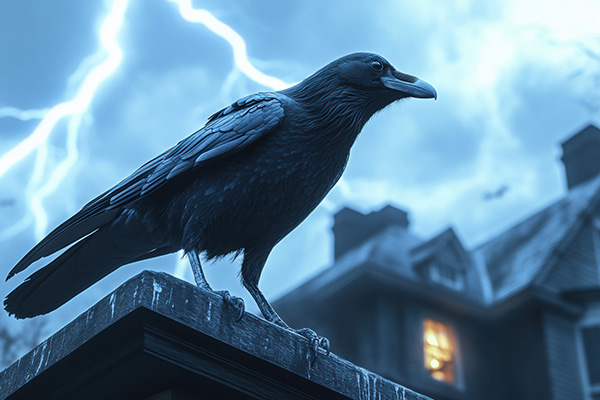symbolism
Thorns Are Only There To Protect The Rose
 Each time we turn to unnecessary conflict, things turn into chaos. It stirs up the aura around each person involved. The ripples of anger and hurt affects everyone involved.
Each time we turn to unnecessary conflict, things turn into chaos. It stirs up the aura around each person involved. The ripples of anger and hurt affects everyone involved.
This doesn’t mean we can’t ever stand up for ourselves, or disagree. In fact, statistics prove that couples who never argue most often don’t last in their relationships.
A good storm now and then can clear up things and allow us opportunity to express the things we have been suppressing.
But often we hold it in for too long, and then it blows up. When this happens, the drama is often worse than it needed to be. We say things we later regret. We are even surprised by some of the things we say when we get this upset! Where did that come from?
Then, as time goes on, we want to make amends. Yet, those words caused a hurt that never really leaves. Sometimes an apology is no longer enough.
I know that it is hard to do, but it is mostly for the best not to stir the pot when it is already too late. The wisest way to handle issues is to bring them up early on. Talk and work them out before they blow up.
Love is like a rose. Roses are so beautiful, with their sweet smell, the velvet petals, brilliant colors, and heady scent. It overwhelms the senses.
The Power Of Psychic Prediction
 The future is fluid and dynamic, and responds to the forces of the present moment. Feeling peaceful, grounded and centered in the present moment is a feeling we all strive to experience every day, but the challenges of life often pulls in memories of the past, and worries about the future.
The future is fluid and dynamic, and responds to the forces of the present moment. Feeling peaceful, grounded and centered in the present moment is a feeling we all strive to experience every day, but the challenges of life often pulls in memories of the past, and worries about the future.
Thoughts of the future can bring up fear and anxiety as we face the unknown, especially when viewed through current life challenges. In such challenging times you may want to consider reaching out to a psychic advisor, for clarity and support in navigating the path ahead. In my own life I have valued the support of a trusted fellow psychic advisor, especially during emotional and challenging times.
We all experience difficult times, and having someone hold a vision for us about our future path can be highly valuable. Someone to see the divine order in unforeseen events, and show us a way through the uncertainty, despite the challenges and broken pieces of the present. This reassurance helps to strengthen our resolve and belief in ourselves and our future.
As a psychic reader, I have great awareness of the power of a prediction. I believe that the true gift in a prediction is that they can provide a preparedness for the journey ahead, and they can anchor us in faith and hope. Faith is to have trust in something or someone, and it is a source of comfort.
Asking the Divine about the likelihood of future outcomes shows an open-heartedness and desire to see beyond the current. It also says to the Divine, show me the way. Guide me the vision, so that I may walk with more clarity and an open mind and heart.
The Emotional Imprints Of Past Lives
 I once did a psychic reading for a lady who had a real fear of the ocean. Her fear extended to being a passenger in an aircraft flying high above the ocean, to being on the beachfront trying to relax to the sound of waves crashing along the shore-line. She had booked a session with me to see if we could discover the source of her deep-seated fear of the sea.
I once did a psychic reading for a lady who had a real fear of the ocean. Her fear extended to being a passenger in an aircraft flying high above the ocean, to being on the beachfront trying to relax to the sound of waves crashing along the shore-line. She had booked a session with me to see if we could discover the source of her deep-seated fear of the sea.
The answer to people’s emotional blocks often comes to me through imagery and sounds, which I receive in my mind’s eye.
In this client’s case, the answer came ‘crystal clear.’ I saw a vision of a sailing ship from the 1800s being thrown around in a terrible storm, and I knew right away, that it was a past incarnation from whence her fear of water stemmed.
She had, in fact been a sailor on that ship, which sank. She died at sea after being swept overboard during tumultuous weather conditions.
The actual cause of many relationship challenges or emotional problems can lie in trauma which went unresolved in a previous life.
Emotional wounds leave emotional imprints, which filter into our current emotional condition. Locating the root problem from past lifetimes can go far in freeing us to move forward, free from those shackles that keep us stuck.
Have you ever felt uneasy when meeting someone new, without even knowing anything about them? It’s my belief that one can be holding a memory of a shared past life, in which the soul essence of the person, with whom we are ill at ease, was someone who harmed us in some way in another lifetime.
Protect Yourself From Toxic Noise And Psychic Junk
 How often do you consider the health of your auric space or personal energy field, which is constantly being bombarded with so much negative energy these days. Are you doing enough to protect yourself?
How often do you consider the health of your auric space or personal energy field, which is constantly being bombarded with so much negative energy these days. Are you doing enough to protect yourself?
First and foremost, you need to have healthy boundaries. Each of us needs and deserves to have a safe place, a sense of self-worth, and protection from others. Think about what happens to a beach that is battered constantly by waves. It will wear down and eventually disappear. If you don’t have boundaries, your very identity will be like those grains of sand.
Learning to connect back to the Earth and nature is essential to our well-being. This can be as simple as walking without shoes in a natural space, or by keeping plants in your living space. When we are separate from our natural selves, we lose perhaps the most important part of our soul.
By walking in nature, you are literally reconnecting. Like a lightning bolt discharging energy when it strikes solid ground, you are releasing all the negative energies that accumulate in your body. Take a friend, or walk your dog if you have one.
If these energies, and their associated negative effects, are like frantic little animals in the cage of our bodies, we need to find ways to calm them. Centering rituals using meditation, candles, crystals, or whatever individual tradition you may follow, need to be part of your day, just like meals and baths.


